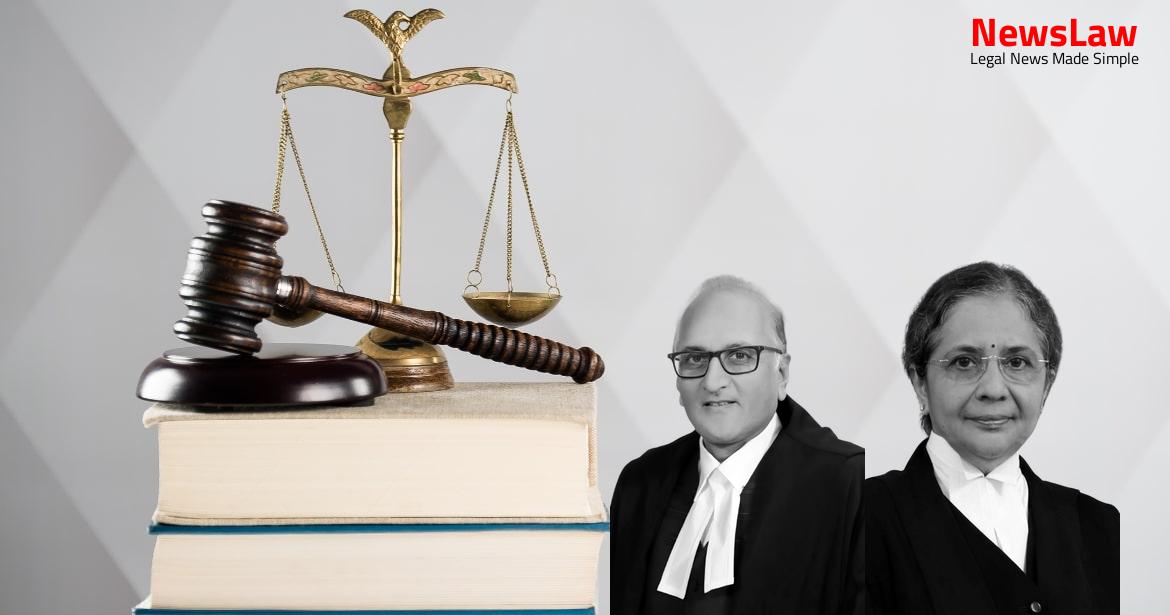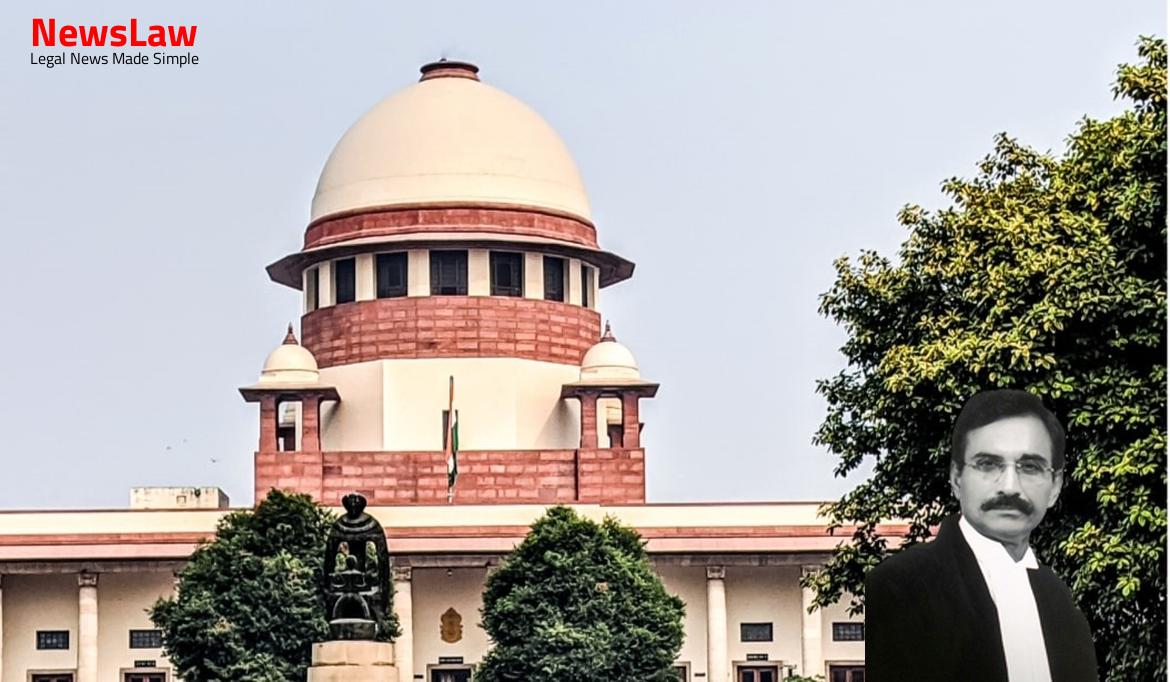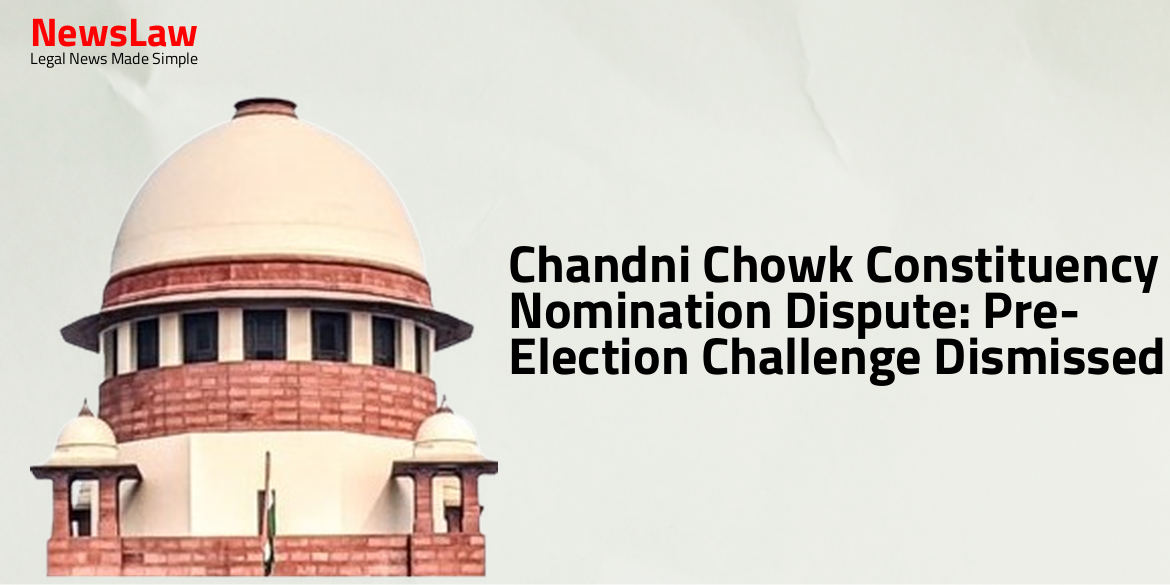Explore a recent legal case where the court’s detailed legal analysis of evidence and fact-finding process played a crucial role in determining the outcome. The judgment highlights the significance of proper examination of facts and the court’s authority to review evidence in-depth. Follow along to see how the court’s scrutiny shaped the resolution of the dispute.
Facts
- The appellants filed two suits against the respondent, seeking specific performance of an agreement of sale dated 28.05.1973.
- The first appellate court initially ruled in favor of the appellants in the second suit.
- The appellants alleged that the respondent did not execute the sale deed despite receiving full payment.
- The Land Tribunal initially ruled in favor of the appellants in a separate matter, but the findings were later set aside by the High Court.
- The appellants filed another suit alleging that the sale deed in favor of the respondent was nominal and executed as security for a loan.
- The Trial Court and the Appeals court considered evidence regarding Ex.D-3 and found in favor of the respondent.
- The High Court held that the sale deed in favor of the respondents was nominal and not meant to be acted upon.
- The trial court rejected the appellant’s defence and decreed the suit, disbelieving the agreement to sell (Ex.D-3).
- The trial court concluded that Ex.D-3 lacked details of the suit lands and did not mention any payment of interest.
- The trial court examined the application for occupancy rights, which identified the respondents as owners and the appellants as tenants.
- The trial court found discrepancies in the writings on Ex.D-3 compared to the admitted sale deed, Ex.P-1.
- The High Court upheld the trial court’s judgment, considering Ex.D-3 and other evidence before it.
- The High Court questioned whether Ex.D-3 could be considered genuine based on the materials on record.
- The High Court found in favor of the respondent and noted that the trial court’s findings were sound and justified.
Also Read: Electoral Malpractices in Mayor Election
Analysis
- The appellants claimed Ex.P-1 was nominal and meant as a security, to be reconveyed after full payment of ₹9000 which was allegedly made to the respondent.
- The Land Tribunal ordered the respondent’s dispossession, which was set aside by the High Court for reconsideration.
- Appellants failed to produce evidence of interest payment or full repayment of the principal amount of ₹9000.
- High Court’s power to determine issues of fact under Section 103 CPC was highlighted.
- Contradictions between pleading, documents, and oral evidence were noted against the appellants.
- High Court emphasized that findings of fact can be upset under exceptional circumstances.
- Importance of framing substantial questions of law under Section 100 CPC was reiterated.
- Court’s limited factual review under Section 103 CPC was discussed for correcting erroneous findings.
- High Court’s examination of documents and evidence under Section 103 for correcting findings was justified.
- The judgment approved the trial court’s reasons for rejecting Ex.D-3, emphasizing the purpose of Section 103 CPC.
- Courts must not make findings based on conjecture and surmises as it indicates non-application of mind.
- High Courts have the jurisdiction to decide factual issues under Section 103 IPC under certain circumstances.
- High Courts can interfere with the first appellate court’s judgment based on sound reasons if evidence on record supports it.
- Evidence must be sufficient for the High Court to determine any necessary issue for the appeal in a second appeal.
- A finding of fact can be deemed infirm if relevant material is ignored or irrelevant material is considered, or if the finding is illogical or irrational.
- The impugned judgment does not warrant interference in the exercise of special leave jurisdiction
- The appeals lack merit and are dismissed
- No costs are ordered in this matter
Also Read: Balancing Power and Transparency: Electoral Bonds Struck Down, Disclosure Mandated
Case Title: K.N.NAGARAJAPPA Vs. H.NARASIMHA REDDY (2021 INSC 461)
Case Number: C.A. No.-005033-005034 / 2009



